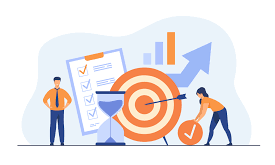Forex trading is a great way to make money, but it is not for everyone. There are many trade sectors to explore as trading trends improve via multi-faceted platforms like MetaTrader 5 in Australia. Forex trade is a niche, and here are a few things worth knowing that will help you decide whether it is for you.
What is forex trading?
Forex, or foreign exchange, is a global market where buyers and sellers trade one currency for another. Forex trading is the buying and selling of currencies. It is not available to all investors because it requires specialized knowledge and experience. However, if you want to get started with forex trading in Australia, here are some things you should know:
- The Australian dollar (AUD) is one of the most traded currencies worldwide
- The AUD has been one of the strongest-performing currencies over recent years
- The Australian market opens at 3 am Sydney time (GMT+10) each morning
How does currency trading work?
The forex market is the world’s largest, most liquid, and most transparent financial market. It’s also a global market, which means that all currencies are traded 24 hours a day. This means you can trade anytime you want, as long as your broker has trading hours in your local time zone.
The biggest misconception about currency trading is that it’s a zero-sum game; this isn’t true at all! It’s possible to make money by buying low and selling high – while also preventing yourself from losing all of your money by doing nothing but selling when everyone else is buying (or vice versa). The easiest way to do this is through leverage. Platforms like MetaTrader 5 in Australia are beginner-friendly and bring market analyses and deal-finding tools to the user.
Types of forex accounts
- Cash accounts (also called standard accounts) are used by traders who want to keep their money in the account and not use it to trade.
- Most forex traders use margin accounts because they allow you to borrow money from your broker and use it for trading. The interest rate that you pay on this loan depends on how much leverage you want when trading.
- Futures accounts enable you to trade futures contracts in commodities such as gold, silver, oil and grains. You can also trade some equities through a futures account, though these types of trades will have different rules than those listed above (such as margin requirements).
- Options accounts allow you to speculate on whether an underlying asset will be worth more or less at any point in time during its life cycle. If a seller sells an option contract for $10 today with an expiration date six months away but buys it back at $20 within five months after selling it originally, then there was the profit made from this transaction known as “covered call writing” strategy where one party sells an option contract while simultaneously buying another identical contract with different terms from another party; both parties benefit because they receive income while protecting themselves against downside risk.
- Spread betting allows traders who live outside Australia to avoid paying tax on profits if they win trades without having them taxed first before being able to allow them to invest online using international sites, which offer greater flexibility compared with Australian ones – but again, this comes with risks due because spreads usually vary significantly between providers so make sure check before committing.
Tax implications in Australia
The Australian Taxation Office (ATO) has specific rules for forex traders. If you’re regularly trading, the ATO will want to know about it and will expect you to declare these earnings on your income tax return.
You should be aware that forex trading is not tax-free; if you make money from it, you’ll have to pay tax on those profits. The ATO has created a special section for forex traders that includes general information about the taxation of foreign currency transactions.
 Time News Global Business, Technology, Entrepreneurship News
Time News Global Business, Technology, Entrepreneurship News




